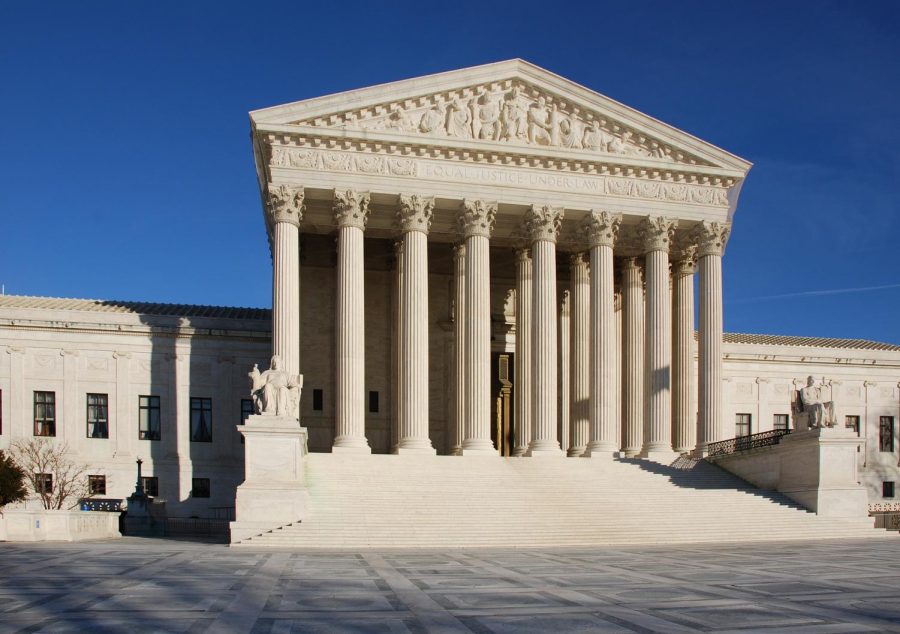Kincart: Dobbs v. Jackson Women’s Health Organization Poses a Threat to Health
December 23, 2021
On Dec. 1, the Supreme Court listened to arguments for a Mississippi law challenging Roe v. Wade. This case, Dobbs v. Jackson Women’s Health Organization, could prompt one of the most significant abortion rights rulings in decades. The two places I call home, Utah and South Dakota, both have trigger laws. These laws would automatically and immediately ban abortions if the Supreme Court decision overturns Roe v. Wade. Not only does the ruling of this case have the potential to harm female health by further limiting abortion access, but Utahns’ health could suffer due to their trigger law.
Roe v. Wade’s standard dwindles if the Supreme Court approves the law. It currently holds that a legal right to abortion exists until 24 weeks into the pregnancy. Overturning Roe v. Wade means that Utah’s Senate Bill 174 immediately goes into effect. S.B. 174 outlaws most abortions, unless the patient meets specific criteria. Professor Claudia Geist, a reproductive justice professor at the University of Utah, explained that “the moment Roe falls, abortion will essentially be very unavailable in Utah.” This bill outlines specific exemptions from an abortion ban, for example, death or “substantial and irreversible impairment of a majorly bodily function” of the person receiving the abortion.
It also gives exemptions for police-reported rape, which Dr. Geist finds especially concerning. “So many people avoid reporting sexual assault to the authorities because it’s difficult for survivors to deal with the criminal legal system,” she said. “In the case that you have a victim or survivor find out that they’re pregnant, now they also have to then report [the rape].” Reporting rape often retraumatizes and hurts survivors because the unequal power dynamics of police interactions mirror those of sexual assault. This trigger law hurts the mental health of women by requiring police reports.
Utah’s trigger law also puts the security and mental well-being of abortion providers at risk. Dr. Geist said, “There is a risk of losing [their] license if they perform abortions that are outside of the scope [of the bill].” Although providers may morally side with a prospective client and agree an abortion is in their best interest, Utah’s law will prevent them from performing an abortion. That’s a lot of cognitive dissonances for a healthcare worker to experience — and it’s not right. Dr. Geist explained that abortion providers will have to “double-check all of those qualifying conditions, [which is] a big stressor and responsibility because they could be criminally liable.” This extra pressure can put a strain on the provider.
Utah’s specific trigger law not only causes concern for health but so does the entire premise of limiting abortions through overturning Roe v. Wade. Broadly speaking, as Dr. Geist explained, pregnancy is a “disruptive health condition.” We hear success stories of women running marathons while pregnant and putting the child up for adoption, but many don’t have that privilege. Pregnant people can be put on bed rest, keeping them from their regular routines. Depression and anxiety are the most common mental health problems experienced by pregnant people.
Additionally, Roe v. Wade upholds the right to safe abortion. Without it in place, Utah would lose access to safe abortions. But, there will still be people who don’t want to be pregnant so they resort to unsafe alternatives. These unsafe abortions are one of the five top causes of maternal mortality. Keeping Roe v. Wade in place allows us to prevent unsafe abortions and therefore a significant form of maternal death.
Abortion bans can also lead to more women having unwanted pregnancies, which pose negative health consequences. Six percent of women who gave birth reported a potentially life-threatening condition like preeclampsia or a postpartum hemorrhage. But only one percent of women who received an abortion reported experiencing a life-threatening condition.
Right now, we sit waiting for a verdict to Dobbs v. Jackson Women’s Health Organization, and won’t likely get one until June 2022. We don’t know what will happen to abortion laws nationwide, and that scares me. Abortion is a very real issue and this uncertainty can lead to increased anxiety. I and others feel anxious about the pending Supreme Court Decision and what it means for reproductive health. Until we get a ruling, we remain comforted that others endure this worry with us. It’s important that we find a community to help us overcome these potential injustices.








